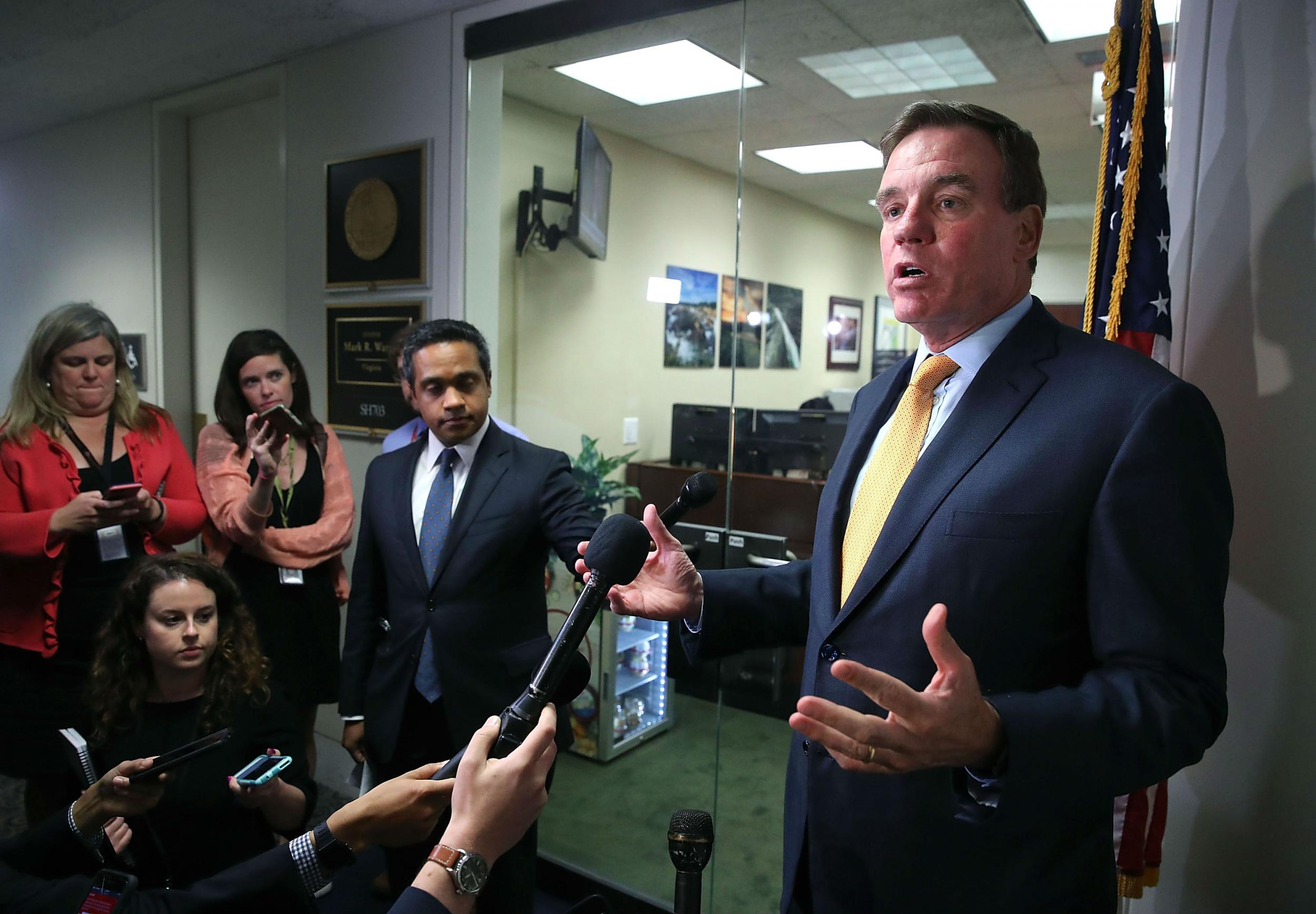Russia election probe: Congress looks to Silicon Valley to uncover possible interference in 2016 vote
Google, Twitter and Facebook – companies which hold massive influence over information and their users – are all under scrutiny

Your support helps us to tell the story
From reproductive rights to climate change to Big Tech, The Independent is on the ground when the story is developing. Whether it's investigating the financials of Elon Musk's pro-Trump PAC or producing our latest documentary, 'The A Word', which shines a light on the American women fighting for reproductive rights, we know how important it is to parse out the facts from the messaging.
At such a critical moment in US history, we need reporters on the ground. Your donation allows us to keep sending journalists to speak to both sides of the story.
The Independent is trusted by Americans across the entire political spectrum. And unlike many other quality news outlets, we choose not to lock Americans out of our reporting and analysis with paywalls. We believe quality journalism should be available to everyone, paid for by those who can afford it.
Your support makes all the difference.The road to understanding Russia’s election meddling runs through the technology industry.
That appears to be one conclusion drawn by congressional investigators who, seeking to illuminate a far-reaching Russian campaign to foment division and undermine confidence in democracy during the 2016 election cycle, have increasingly turned their attention to the role of major tech platforms. And it is putting major Silicon Valley players in the hot seat.
Three companies that together wield massive influence over how information circulates – Twitter, Facebook and Google – have been in the news for drawing the focus of lawmakers, and the reckoning is unlikely to end soon. Congress has called for representatives of all three to appear during an open hearing.
Google has launched a broad investigation into whether Russian actors used the company to try and influence voters, according to the Wall Street Journal, which reported that Google was in contact with congressional officials and planned to share its findings.
Earlier this week, Twitter’s policy chief travelled to Capitol Hill to brief Congress on how Russia used the social media platform to project its influence.
Twitter said after the meeting that it had identified about 200 accounts potentially related to Russian actors and had turned over ads purchased by Kremlin-aligned broadcaster RT.
That was not enough for the top Democrat on the Senate Select Committee on Intelligence, Mark Warner, who blasted Twitter’s presentation as “deeply disappointing” and “inadequate on almost every level”, suggesting Twitter did not grasp the gravity of the challenge to American democracy.
“Talk is cheap,” he said. “What I’d like to see is a real effort to try and work with us in a way that we can make sure Americans understand the nature and extent of the threat.”
Facebook has already briefed Congress and turned over thousands of advertisements purchased by Russian-affiliated fake accounts. Founder Mark Zuckerberg offered a moment of public contrition this week, posting on his site that he regretted having dismissed as “crazy” the notion of Facebook shaping the election outcome by serving as a conduit for fake news.
“This is too important to be dismissive,” Mr Zuckerberg wrote.
As Congress probes how Russia used online channels to advance its agenda, lawmakers have begun proposing rules to help illuminate the source of online advertising. A pair of Democratic senators have floated legislation that would require large digital platforms to track and share who purchases political advertisements.
In a preview of how the effort to trace Russian influence could extend beyond election-specific consequences, a Texas Republican who is a powerful fossil fuel industry ally wrote this week to Facebook, Twitter and Alphabet – Google’s parent company – seeking evidence that Russia may have purchased ads critical of hydraulic fracturing, or fracking, in an effort to undermine the American energy industry.
The flurry of activity points to Congress continuing to put pressure on the technology industry as multiple inquiries into Russian influence proceed. Judging by comments from lawmakers, there is more to come.
“All of these companies – they are great American success stories, they are kind of 21st century iconic companies – but in so many ways they depend upon the trust and faith they’ve built up with their users,” Senator Warner said, and if Americans “don’t know whether ad sponsorship is coming from foreign governments and foreign agents, or if stories are popping up not because there’s genuine interest from Americans but it’s being sponsored by foreign entities, I think Americans are going to want too know that”.
“At some point,” he added, “these companies are going to test the confidence and faith that Americans have in their enterprises.”
Representative Adam Schiff, a California Democrat who is Senator Warner’s intelligence committee counterpart in the House of Representatives, built on that critique in an interview with PBS NewsHour, saying “we don’t really have a sense the full dimension” of how Russia weaponised social media.
“I think that we only still have scratched the surface,” Representative Schiff said.
Join our commenting forum
Join thought-provoking conversations, follow other Independent readers and see their replies
Comments